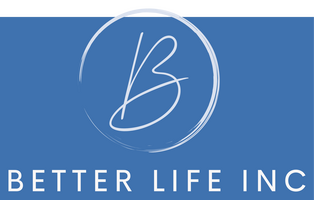Post-Traumatic Stress Disorder (PTSD) is a well-known condition, often associated with survivors of traumatic events like combat, accidents, or natural disasters, and often with a one-time event. Yet, there is another form of trauma-related disorder known as Complex PTSD (C-PTSD), which can be equally debilitating. In this Article I will discuss complexities of C-PTSD, its causes, symptoms, and potential paths to healing and recovery.
C-PTSD, co-dependency, people-pleasing/fawning, are all intertwined. And, just like PTSD, issues with fight (yelling, arguing), flight (running away, shutting down), or freeze (denial, sweeping issues under the rug), are also an outcome of C-PTSD.
Complex Trauma differs from traditional PTSD in that it typically arises from prolonged exposure to traumatic events, often of an interpersonal nature, such as childhood neglect, abuse, domestic violence, and substance abuse. Abuse is not always physical abuse, and there are other risk factors such as:
- emotional abuse
- emotional neglect (by emotionally immature parents)
- verbal abuse
- psychological abuse
- mental abuse
- witnessing domestic violence
- physical abuse
When our foundational needs were not met during our childhood, we develop characteristics necessary to navigate our feelings, navigate the emotions of our caretakers, and we thereby put their feelings at the forefront of our attention, and our own on the back burner. We learn that others’ feelings need to be focused on before our own since we cannot live without our caretakers and rely on them for survival.
C-PTSD is characterized by the cumulative effect of repeated trauma over an extended period of time. The cumulation of neglect or abuse does not have to be substantial, but repetitious.
Symptoms of C-PTSD include:
- Emotional dysregulation where we struggle with intense fluctuating emotions such as anger, sadness, and fear.
- Flashbacks or intrusive memories of events, situations, and conversations.
- Dissociation or feeling disconnected to one’s thoughts, feelings, or surroundings which becomes a coping mechanism.
- Self-esteem issues as our self-worth is eroded which often results in our feelings of shame and guilt.
- Relationship difficulties as we come to believe that if we are not interesting enough to those caretakers who are the most important and closest relationships we have had, then we cannot possibly trust other relationships causing intimacy and trust issues with others.
Can we heal and recover from repeated characteristics lack of bonding and the creation of inner wounds? With the goal of reducing and/or eliminating the symptoms of C-PTSD, we can find recovery in:
- Therapy such as CBT DBT EMDR EFT IFS and other modalities of treatment;
- Coordination of therapy with medication to help manage symptoms of anxiety, depression, or mood dysregulation;
- Self-care techniques such as mindfulness, breathing exercises, yoga and exercise, journaling, and other routines and rituals to help regulate the parasympathetic nervous system, our emotions and reduce stress;
- Building and maintaining a healthy support network or “tribe” which might include friends, family members, a group we are involved in, a minister or priest, a therapist, a physician or psychiatrist, a spiritual guru, and other healthy professional and personal relationships;
- Educating ourselves about C-PTSD and its symptoms through reading, research, listening to podcasts, and any other means to empower us to better understand our experiences and move towards recovery;
- Setting boundaries which is essential to every healthy relationship and for healing.
Complex PTSD is a challenging and often misunderstood condition resulting from prolonged exposure to abuse and neglect that leaves emotional scars, neurological injuries, and deep-seated psychological wounds, and results in feelings of low self-worth and unhealthy relationships in our adult lives. I always say we are volunteers not victims in our relationships, but this is not true of our relationships with our parents when we are children and counting on them for food, shelter, and other means of survival.
And, as a reminder, to stop the cycle and create healthy and responsible parenting abilities of your own, so that you are not passing along the risks and symptoms of C-PTSD, it is up to you to learn the skills by demonstrating:
- Emotional regulation
- Healthy coping skills
- Healthy problem-solving skills
- Eliminate addictions and dependency which are unhealthy coping and problem-solving techniques
- Healthy communication skills
- Healthy and appropriate relationship skills
- Take interest in your children’s inner world and accept and validate their feelings and opinions
- Make sure your children feel like a valued member of the family
- Stop telling them they are responsible for your feelings such as “making you” happy, disappointed, angry, etc.
For more information on C-PTSD or its symptoms and recovery:
Growing Up with Emotionally Immature Parents | Better Life Inc
A Map for Growth and Self-Improvement | Better Life Inc
Understanding Attachment Styles in Relationships | Better Life Inc
Therapeutic Journaling | Better Life Inc
Healing and Thriving Beyond Unhealthy Relationships | Better Life Inc
Doing The Things That Will Make Your Life Better | Better Life Inc
May your healing journey lead you to a life of peace and happiness,

